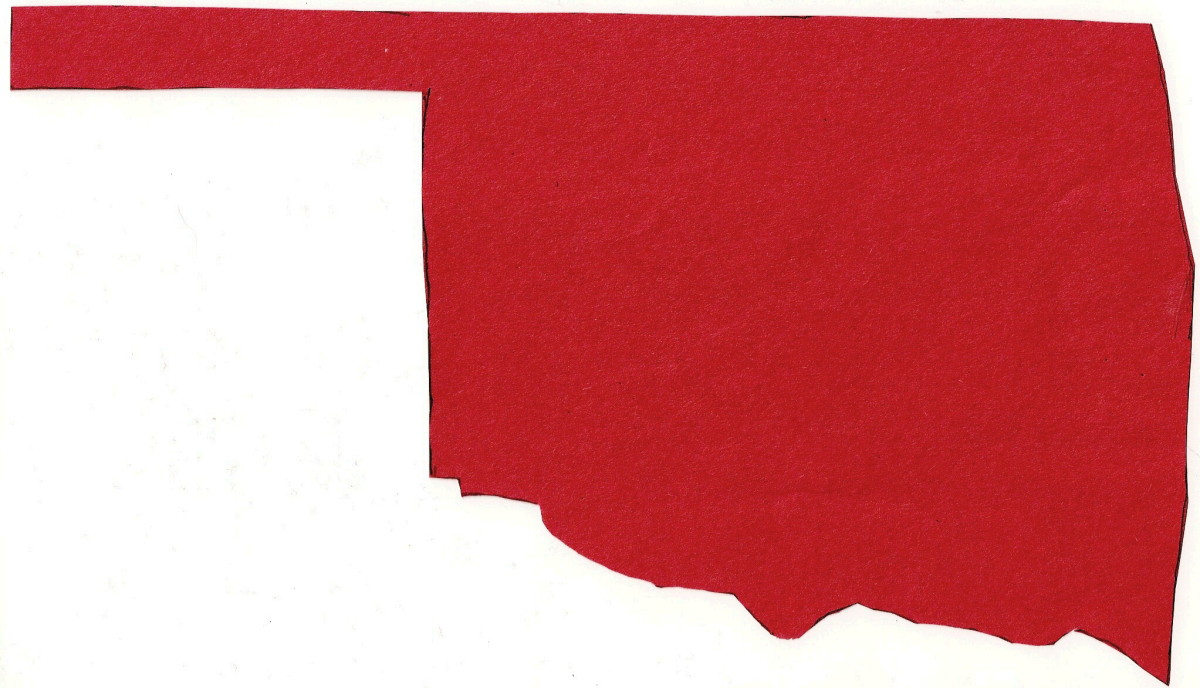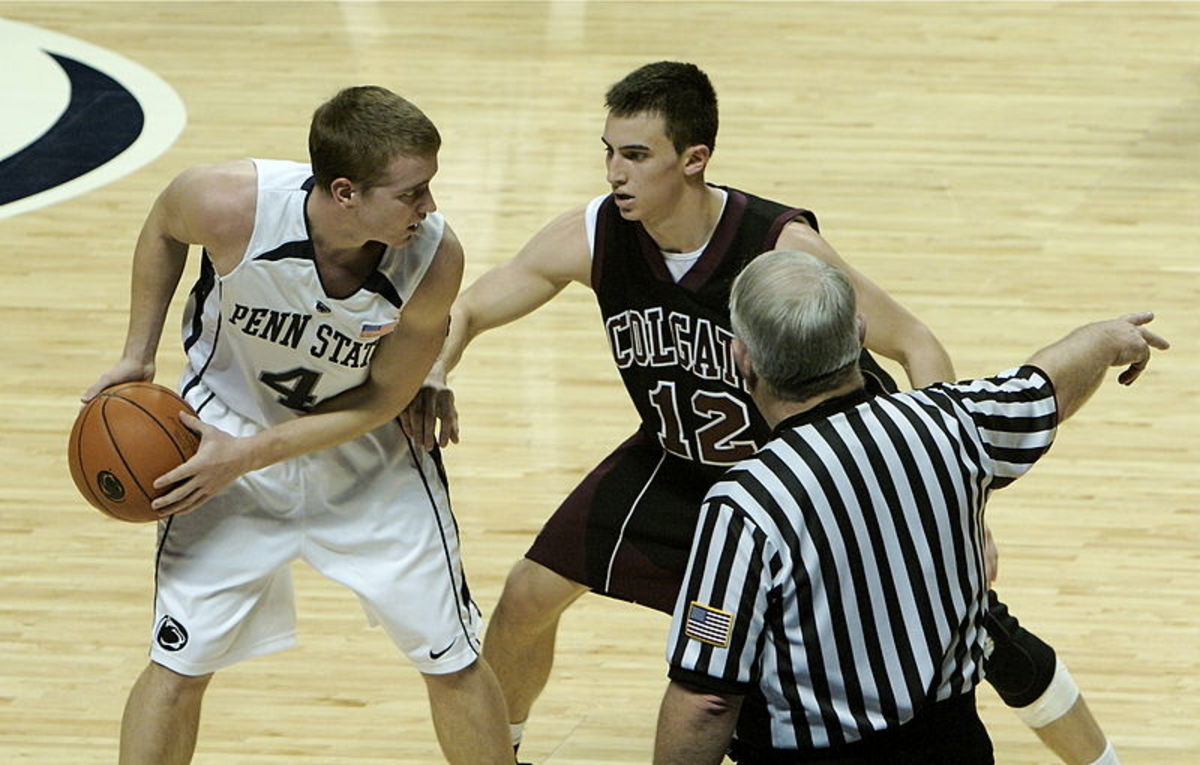A COLLEGE FOOTBALL PLAYOFF - MY PROPOSAL
Over the past two decades or so, there has been much controversy, griping, and complaining over the fact that the Division 1-A level of NCAA Football - now called the Football Bowl Subdivision - has no true playoff system, unlike every other level of college and professional sports.
The lack of a playoff system has caused a number of disputes through the years over who is college football's national champion, most recently in 2003, when the University of Southern California finished at number one in both the Associated Press and the coaches polls, while Louisiana State University won the Bowl Championship Series National Championship Game.
Other teams, in the past, have finished with perfect, undefeated seasons but due to the polls did not get the opportunuity to play for a title, notably Penn State in 1994, when the Nittany Lions went 12-0 and soundly defeated Oregon in the Rose Bowl, yet it was Nebraska's Cornhuskers who won the crown that year.
The average football fan has looked at situations like these and loudly wondered why Division 1-A Football (the FBS) does not simply decide a national champion on the field like everyone else.
At the heart of the matter, the quintessential reason the bowl system as it is has been in place for decades, is money.
The ABC network's deal with the Bowl Championship Series and the NCAA, enacted in 1998, has paid countless millions of dollars to schools from the conferences involved in the BCS: The Pacific-10, the Big-10, the Big-12, the Southeastern Conference, the Atlantic Coast Conference, and the Big East, plus Notre Dame. In the minds of the college presidents, chancellors, and athletic directors of those schools, to risk sacrificing those huge sums of money and revenue for any reason would be insane.
Those same men in suits have also expressed concerns that a major college football playoff would result in extra games, classtime being taken away from the student-athletes, and the season lasting too long. Also, any discussions of a playoff has raised an uproar among the committees of the BCS bowls - the Orange Bowl in Miami, the Fiesta Bowl in Tempe, Arizona, the Sugar Bowl in New Orleans, and especially the "granddaddy of 'em all", the Rose Bowl in Pasadena, California.
Those bowl committees fear that any playoffs that the NCAA may enact would lessen the importance and traditions of their games and the pageantry that goes along with them, such as the Tournament of Roses Parade in Pasadena held on New Year's Day, an American institution if ever there was one.
Essentially, these are the factors that contribute to a lack of a football playoff at the major college level, which will continue to be so as long as the college presidents and the bowl committees feel the way that they do.
However, I recently figured out a way for Division 1-A (the FBS) football to implement a playoff system while keeping the BCS polls, the bowl games, and their traditions intact. It would also keep the extension of the season at a minimum:
First, the regular season, the BCS polls, the conference championship games and the four BCS bowls would remain intact. After the final BCS poll came out in early December, the top eight teams in that poll would be in those four BCS bowl games, which would still be played on or around January 1st.
Those bowl games would serve as the quarterfinals of the playoffs.
The traditional bowl matchups, i.e., the Pac-10 and the Big-10 conference winners playing in the Rose Bowl, would remain unchanged, as the champions of those major BCS conferences would most likely be among the top eight teams in that final poll; the SEC champ can still play in the Sugar Bowl, and the team with the Big-12 crown can still play in the Fiesta Bowl, which has been longtime traditional goals for those respective conference teams.
The ACC and Big East title holders could meet in the Orange Bowl, and the two other top-eight squads, including Notre Dame if they finished that high, would get at-large bids to the Fiesta and the Sugar Bowls.
All of this would be based on the condition that the winners of those conferences finish among the BCS poll's top eight.
Considering the strength of those conferences, that would be an almost foregone conclusion; it would be profoundly difficult to imagine the champions of the SEC, the Big-12, and the Big-10 not being in that top eight.
If, on the off chance, a BCS conference champ had three or four losses and finished ninth or tenth in that final poll, tough luck. That team should have done better, taken care of business, and probably didn't deserve a shot at the national title anyway.
Two weeks after those quarterfinal games were played, on the third weekend of January, an NCAA Football Bowl Subdivision Final Four would be held at of one of the BCS bowl sites, featuring the winners of those quarterfinals.
The site would rotate between Pasadena, Tempe, New Orleans, or Miami every year, they way it is curently done. Two of those teams would play a semi-final on Friday or Saturday, while the other two would play the following Sunday or Monday. The winners of those two contests would play an NCAA Football Bowl Subdivision National Championship Game the following Saturday at the same site, to lessen travel.
By using this playoff format, a champion would be crowned, and it would all be over by January's end - not only would the national champ be decided on the field, as it should, but the whole thing would take, at most, two games over a three week span; half of those four teams would play just one extra game.
Plus, as most of the colleges and universities use a semester system, with their break in January, the notion of athletes missing classes would be moot; the school presidents could not use that as an excuse.
What about travel costs and other expenses, as some would inevitably ask?
If ABC could not come up with the money to televise a major college football championship, which would certainly be a colossal event guaranteeing significant ratings, some other network would. And will pay HUGE sums of cash for the privilege, enough so that expenses for the team, cheerleaders, band, school officials, boosters, and others would be more than taken care of.
Some may say that these playoffs would overlap and conflict with the NFL playoffs, particuarly the championship game in late January.
The solution: Have the title contest played on the following Monday after that Saturday when the match would normally be played, like the NCAA Division 1 Basketball Championship. The pros wouldn't be clashed, compromised, or conflicted with then.
This playoff format, in my view, is a fairly quick and simple way to decide a true champion, which would be beneficial for all parties involved. The traditionalists would keep their bowl games, the networks would pay more money (a LOT more money), and it wouldn't last long, so the bowl committees, purists, college presidents and athletic directors would all be happy.
Unfortunately, because too many higher-ups like things they way they currrently are, a playoff system like this is unlikely to happen, at least until the present BCS contract expires.
That does not change my opinion, however, that this proposal is the best, easiest, and quickest way to decide a champion the same way they are decided everywhere else - on the field, by the players, rather than on a computer by a bunch of writers.






